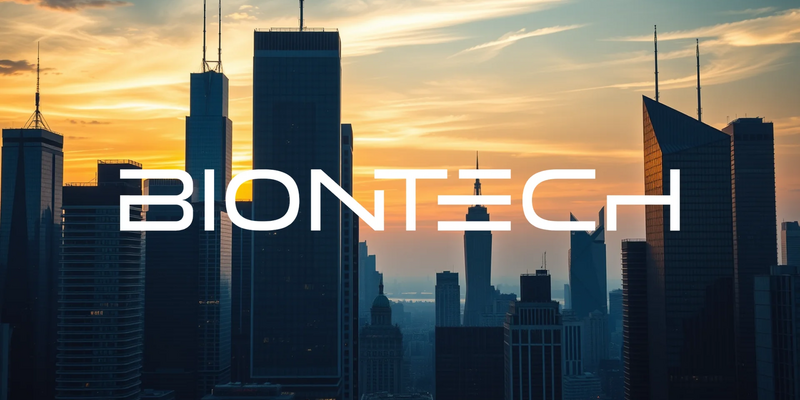Pfizer Offloads Majority Stake in BioNTech in Strategic Shift
14.11.2025 - 09:11:04Pfizer has executed a substantial divestment of its holdings in German biotech firm BioNTech, triggering a significant market reaction. The surprise move saw the US pharmaceutical giant sell off more than half of its stake in its former vaccine partner, causing BioNTech shares to drop 6% on Thursday as investors digested the implications for the future of their pandemic-era alliance.
The details of the transaction reveal its scale: Pfizer disposed of approximately 4.55 million BioNTech shares at prices ranging from $108 to $111.70 per share. This block trade, conducted off-exchange to minimize market disruption, generated up to $508 million for the company. The sale reduces Pfizer's remaining stake to about 1.66 million shares, valued at roughly $163.5 million, representing a 54.7% reduction in its BioNTech ownership.
Despite the significant divestment, BioNTech moved quickly to reassure stakeholders. A company spokesperson emphasized to Reuters that the "close and successful collaboration remains intact," noting that the operational partnership continues unchanged. The spokesperson declined, however, to comment specifically on Pfizer's capital market activities.
Pfizer's Acquisition Strategy Fuels the Divestment
This divestment aligns with Pfizer's clearly articulated strategic direction. Under CEO Albert Bourla, the company aims to generate an additional $20 billion in revenue by 2030, primarily through acquisitions. The timing is notable—on the same Thursday as the BioNTech sale was disclosed, Pfizer finalized its $10 billion acquisition of Metsera, a company specializing in obesity treatments. In recent times, Pfizer has deployed over $100 billion toward strategic purchases.
The proceeds from the BioNTech share sale effectively bolster Pfizer's war chest for future deals, signaling a strategic de-emphasis on mRNA technology in favor of traditional pharmaceutical blockbusters, particularly in the highly lucrative weight-loss medication market.
From Pandemic Partners to Diverging Paths
The Pfizer-BioNTech collaboration dates back to 2018, initially focused on developing mRNA-based influenza vaccines. Its crowning achievement was the COVID-19 vaccine Comirnaty, which became one of the most successful pharmaceutical products in history, generating $37.8 billion in revenue in 2022 alone. However, that period marked the peak of their joint financial success, with revenues declining substantially since as both companies seek new growth drivers.
Should investors sell immediately? Or is it worth buying BioNTech?
BioNTech is now aggressively executing its own strategic pivot from a COVID-19 specialist to a fully-fledged oncology-focused biotech. Its latest quarterly report, released on November 3, demonstrates promising early progress. Revenue climbed to €1.52 billion, significantly boosted by a $700 million payment from partner Bristol Myers Squibb. Based on this performance, BioNTech raised its full-year revenue guidance to a range of €2.6 to €2.8 billion, comfortably exceeding previous market expectations.
BioNTech's Oncology Ambitions and Financial Health
The company's pipeline shows particular promise in cancer therapeutics. The antibody Pumitamig, targeting small cell lung cancer, has demonstrated encouraging results, with additional studies for colorectal and gastric cancers in the planning stages.
Financing this expensive therapeutic transformation is supported by a substantial cash reserve of €16.7 billion, providing BioNTech with ample resources to fund its research and development efforts, even as the company anticipates reporting losses through 2025.
Partnership Reality Check
While the share sale carries significant symbolic weight, the practical collaboration continues. Both companies still share profits from the COVID-19 vaccine, and their partnership agreement remains formally in effect. Nevertheless, the strategic directions are now clearly defined: Pfizer is concentrating on traditional pharmaceuticals, while BioNTech is charging forward in oncology.
Thursday's stock price decline highlights investor sensitivity to such strategic realignments. The fundamental investment thesis for BioNTech—transitioning from a pandemic-dependent entity to a sustainable oncology enterprise—remains valid. The critical question facing the Mainz-based company is whether it can demonstrate an ability to achieve profitable growth in a post-pandemic world, independent of the unprecedented boom that defined its recent past.
Ad
BioNTech Stock: Buy or Sell?! New BioNTech Analysis from November 14 delivers the answer:
The latest BioNTech figures speak for themselves: Urgent action needed for BioNTech investors. Is it worth buying or should you sell? Find out what to do now in the current free analysis from November 14.
BioNTech: Buy or sell? Read more here...


